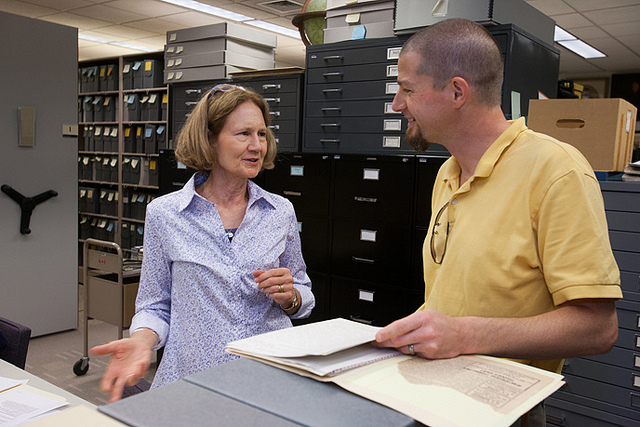The good folks at Messiah College and Harrisburg University are putting on a THATCamp, and I was pleased to see that William Pannapacker of Hope College will join in, Friday, October 25th. Pannapacker is well known for his regular blogs and column in the Chronicle of Higher Education, and for his advocacy for the Digital Humanities at small colleges. Details are still being worked out, but he will likely have a featured session on Friday morning focusing on the present and future of the Digital Humanities.

William Pannapacker of Hope College was one of the plenary speakers at the inaugural THATCamp Vanderbilt, an “unconference” on the digital humanities. Source: Derek Bruff via flickr
If you have not yet registered and proposed a session or “dorkshort” to feature your project, please do!
THATCamp stands for The Humanities And Technology Camp. THATCamp Harrisburg is a professional development opportunity for humanities professionals in both academic and non-academic settings. It serves to introduce newcomers to the tools and purposes of the Digital Humanities and give veterans an opportunity to deepen and broaden their skills, and to share them with others.
THATCamp Harrisburg offers opportunities for new conversations and relationships, and contributes to further work in the digital humanities that will benefit the Central Pennsylvania region, as well as the larger community of humanities professionals.
Call for Participation
Proposals we are soliciting
- Workshops that will teach participants new skills or introduce them to new digital tools.
- Sessions that will a) discuss topics of interest in the Digital Humanities, b) demonstrate tools, c) create participatory projects.
- Dorkshorts – short presentations on current projects that participants have under way in the digital humanities.
For a list of sample sessions from other THATCamps, check the “propose” tab on the website: http://hbg2013.thatcamp.org/propose/
To propose a workshop, session or dorkshort, register for THATCamp Harrisburg at http://hbg2013.thatcamp.org. Then follow the instructions on the “Propose” tab.
For more information, post a query on the website, or send an email to Peter Kerry Powers, Dean of the Humanities at Messiah College, ppowers@messiah.edu.


